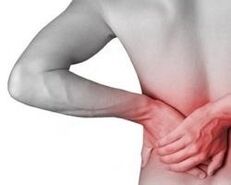
Prostatitis is an inflammatory process that develops in the prostate gland.Theoretically, every man has the risk of getting sick, regardless of age.
But most susceptible to men who are influenced by the following factors:
- A sedentary lifestyle;
- Long -term sexual abstinence or, conversely, excessively active sex life;
- Often constipation.Please note that prostatitis can only cause regular stool disorders, not episodically occurring constipation;
- Hypothermia.To get prostatitis, you do not need to swim in ice water for hours, just sit on a cold stone or are in the cold in inappropriate clothes for a long time;
- Chronic inflammatory diseases (eg chronic bronchitis) or an undiscovered focus of infection in the body (caries, tonsillitis);
- Chronic and acute urological or transmitted sexually transmitted diseases (urethritis, gonorrhea);
- Study work.First of all, these are the ones who are forced to constantly sit at work, without being able to get up and stretch (drivers, computer operators);
- Any conditions that can prevent the body's immune system.These include less or insufficient nutrition, physical and emotional overload, constant lack of sleep, chronic stress).
All the above factors become particularly dangerous if the age of a man exceeds 50 years.In fact, at this age, the hormonal background changes significantly, immunity decreases, various diseases occur, and in addition, few men of this age lead an active lifestyle.It is for these reasons that all men over the age of 50 should visit the urologist once every six months.
How does the disease start?
As a rule, the first sign of the development of prostatitis is unpleasant or even painful sensations during urination.Sometimes you have to get up several times a night to go to the toilet.Few people are looking for a doctor at this stage in the development of the disease, although at this stage the treatment will be short and effective.
After a while, a sharp cutting, pulling or firing in the pubic area or in the perineum occurs, sometimes the pain is emitted to the penis or area of the anus.Urination becomes frequent and painful, the urine becomes much greater.The pain can occur in the process of bowel movements.
Next, body temperature can rise, sometimes men notice the release of translucent white fluid from the urethra.As a rule, most men seek a doctor during this period of illness.
What happens if you do not treat prostatitis?
If, after the symptoms described, do not consult a doctor and do not start treatment, then the disease will further progress.The temperature can rise to 40 degrees, the pain becomes very strong, the urination becomes very painful, the leakage of the urine is disturbed (flowing from the urethra with a thin stream or drops).The longer they do not cure prostatitis, the greater the likelihood of acute delay in urination and the development of acute renal failure.Timely examination is also needed as prostate -like symptoms are also available with cystitis and prostate cancer.
Diagnostics
After connecting to the urologist, a prostate study is performed through the rectum, as well as an analysis of prostate secretion.This procedure is not very pleasant and sometimes painful, especially in the short stages of the disease.Sometimes that is why men do not want to go to a doctor.
But in fact, the earlier you connect for a study, the less painful it is. In addition, the prostate palpation itself is already a treatment as it helps to eliminate stagnation.
In the laboratory, the secrets of the gland are visited for food environments, the sensitivity of the microflora to antibiotics is determined and urine analysis is performed.Ultrasound is also performed to confirm the diagnosis.Most often, prostatitis treatment is not difficult for a urologist undergoing timely treatment.
The early stages of prostatitis are treated at home.The patient is prescribed antibacterial drugs, baths, compresses and other thermal procedures of the crotch, as well as painkillers and prostate massage.Treatment is performed for about 10 days.During treatment, you cannot eat spicy dishes and alcohol.
Signs and treatment of chronic prostatitis
In chronic prostatitis, pain in the perineum occurs, which disappears after walking or mild physical activity, burning is indicated during urination.One often sleeps poorly and becomes irritable.
If chronic prostatitis is not treated, it can cause inflammatory processes in the pelvic organs and even infertility.Reflexology and prostate massage are also added to the above treatment.The patient is advised to lead a more active lifestyle, to exclude spicy foods and alcohol from the diet.
Trust the doctors
Do not try to diagnose yourself without a visit to your doctor.After all, only a urologist will be able to choose the optimal treatment regimen based on the test results.
When you self -give in, you take "blind" antibiotics.This can lead to the transition of the disease to a chronic form.If the disease will continue to progress, hospitalization may be required.At the hospital, the course of therapy will last 1-2 weeks, and perhaps longer.
To prevent the development of complications, be sure to examine the urologist every six months.
Prevention
Prevention of prostatitis comes down to the following recommendations:
- If you have to be in the cold for a long time, choose the right clothes;
- Food regularly and completely;
- Lead an active lifestyle, play sports;
- Use with constipation use laxatives;
- Have a regular sex life, preferably with a permanent partner.
A very large number of men suffer from prostatitis.This article provides basic information about the disease and is also explained why you need to regularly visit the urologist.























